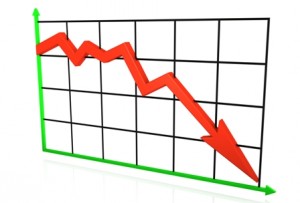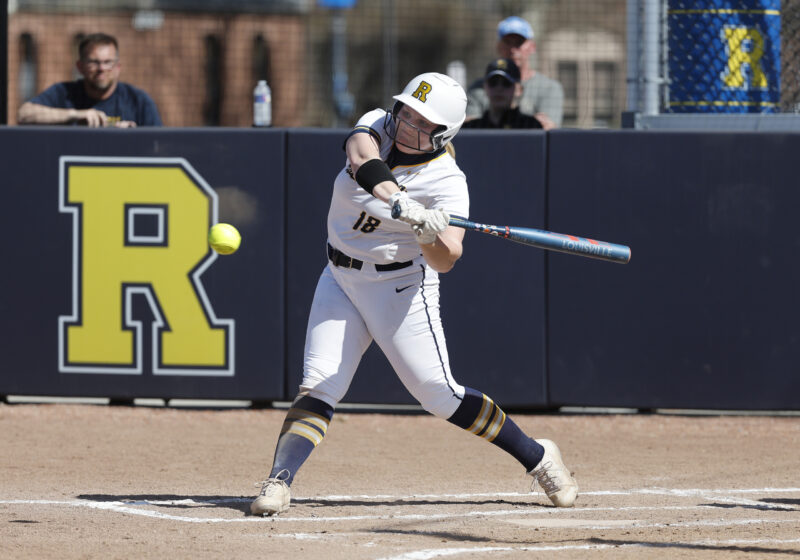 People talk about how Obama has lost his magic — how he can’t sway opinion any more and how people have lost hope and patience because of his methods. They also talk about how his poll numbers have fallen — because he has failed at his promises, because he’s too liberal or not liberal enough, or because he hasn’t pandered enough to the people’s preferences.
People talk about how Obama has lost his magic — how he can’t sway opinion any more and how people have lost hope and patience because of his methods. They also talk about how his poll numbers have fallen — because he has failed at his promises, because he’s too liberal or not liberal enough, or because he hasn’t pandered enough to the people’s preferences.
Some of this may matter at the margins, and some of it is likely not true at all. The truth is that Obama’s poll numbers are down, and there’s nothing he could have done to stop it. It’s not his fault and it’s not the GOP’s fault. It’s the economy’s fault. The state of the economy determines elections and approval ratings far more than people realize or want to admit. Ads, gaffes, candidates and campaigning style are outweighed if the economy is sinking. Those other factors obviously matter as well, and can even determine individual elections, but not as much as the economy.
Political scientists can predict election results and approval ratings just by economic factors. The three best-known landslides of the mid-to-late 20th century (1964, 1972 and 1984) are said to have occurred because of a really good incumbent with mainstream views and a radical or really bad challenger. But what is almost never mentioned is that because of economic and income indicators, political scientists could have predicted similar results before even knowing who the candidates were.
Candidates clearly do matter, but they never swing national elections in those cases. If Lyndon B. Johnson in 1964 faced the more mainstream Nelson Rockefeller instead of the conservative warmonger Barry Goldwater, he would have still won, but possibly with only 59 percent of the vote instead of 61 percent. Presidential speeches do not sway public opinion. Believe it or not, people have beliefs of their own, and they will support the President’s ideas when they agree with him.
An issue thrown around in liberal circles is the “Obama paradox”, in which Obama is still not very popular, but he has accomplished so much. But the problem is that if the economy is shaky or weak, people just won’t care, and that stops the paradox in its tracks. If Obama had a 65 to 70 percent approval rating right now, political scientists would be panicking and running home sobbing, wondering how their years of study could have gone so wrong.
Obama’s poll numbers are where Reagan’s were at this point in his presidency (actually, they’re a little better), so the GOP has no ability to claim that Obama’s drop is exceptional in any way. And Reagan had it worse — the economy was still collapsing during his second year, so his popularity kept falling from there, down to a low of 35% in 1983. Obama has the comfort of knowing the economy is recovering. In fact, and many people don’t know this, the current economy and job market are recovering faster than they did during the last two economic recoveries of 1993 and 2001.
Tons of conservatives accredit the drop in Democratic support to Obama’s “radical Pelosi agenda” and their “out-of-control spending.” But many swing voters who may vote Republican in November are likely not going to care about that. Unlike the economy, political scientists see no correlation between public debt and how people vote. They are going to see how their economic position is and likely vote based on that. If the economy is still bad in 2012, Obama will lose, no matter how much enthusiasm or strong campaigning on his side. If the economy, especially the job market, is recovering, Obama will win, and the faster and more robustly it recovers, the more he will win by. Of course, the GOP candidates will matter if the race is close. A competent economic conservative like Mitt Romney, would put up a much tougher race than an anti-intellectual social conservative, like Sarah Palin. But if the economy improvement occurs under Obama’s watch, Obama will get more votes, regardless of whether he deserves them.
There are countless studies and assertions on this concept, but my point remains valid: swing voters are not turned off by Obama because of obscure policy decisions, talk radio smearing, or ideological differences. If they are, they are probably not swing voters. They are turned off by only one thing: their empty wallet.





